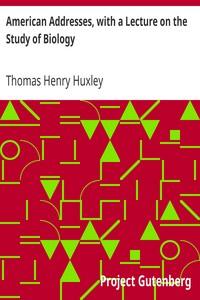|
|
Read this ebook for free! No credit card needed, absolutely nothing to pay.Words: 83131 in 13 pages
This is an ebook sharing website. You can read the uploaded ebooks for free here. No credit cards needed, nothing to pay. If you want to own a digital copy of the ebook, or want to read offline with your favorite ebook-reader, then you can choose to buy and download the ebook.

: The Philippine Islands 1493-1898 — Volume 20 of 55 1621-1624 Explorations by early navigators descriptions of the islands and their peoples their history and records of the Catholic missions as related in contemporaneous books and manuscripts showing@FreeBooksTue 06 Jun, 2023 OF VOLUME XX Preface Documents of 1621 News from the province of Filipinas. Alonso Roman; Manila, . Death of Do?a Catalina Zambrano. ; Manila, July. Letter to the king. Alonso Fajardo de Tenca; Manila, July 21. Letter from the archbishop of Manila to the king. Miguel Garcia Serrano, O.S.A.; Manila, July 30. Letter to the king. Geronimo de Silva; Manila, August 1. Affairs in the Franciscan province. Pedro de Sant Pablo, O.S.F., and others; Manila, 1620-21. Letter to the king. Alonso Fajardo de Tenca; Manila, December 10. Documents of 1622 Letters to the king. Alvaro Messa y Lugo; Manila, 1621 and July 30, 1622. Letters from the archbishop of Manila to the king. Miguel Garc?a Serrano; Manila, 1621-22. Royal decrees regarding the religious. Felipe IV; Madrid, December 31. Documents of 1623-1624 Letter to Fajardo. Felipe IV; Madrid, October 9, 1623. Royal permission for the Dominican college in Manila. Felipe IV; Madrid, November 27, 1623. Expedition to the mines of the Igorrotes. Alonso Martin Quirante; Alingayen, June 5, 1624. Bibliographical Data. Autograph signatures of Valerio de Ledesma and Alonso Roman; photographic facsimiles from tracings in the Ventura del Arco MS. Weapons of the Igorrotes; photograph of weapons in the Colegio de Agustinos Filipinos, Valladolid. Weapons of the natives of North Luz?n; photograph of weapons in the Museo-Biblioteca de Ultramar, Madrid. PREFACE The years 1621-24, although not marked by great battles, conquests, or calamities, contain much that is of interest in the internal development of the Philippine colony; and these documents vividly illustrate the ceaseless play and interaction of human interests and passions--especially in the romantic but tragic love-affair of Fajardo's wife, in which is material for a brilliant novel. The usual conflicts occur between the civil authorities and the friars, and between the governor and the Audiencia; but the records of these controversies furnish an unusual revelation of human nature and its complicated phenomena. The alliance between the Dutch and the English menaces this far Oriental Spanish colony with even more dangers than it has already experienced; and its feeble defenses and insufficient equipment of arms and men keep its people in constant dread and anxiety. For defense against the expected attacks of the heretics against Manila more ships and fortifications are constructed; but this imposes additional burdens on the poor Indians, which the governor tries to mitigate by endeavors to protect them from the oppression that they endure from the Spaniards. Controversies arise between the various orders, and within that of St Francis, which are settled by the intervention of the bishop and governor. Reports made by the orders show that over half a million of the natives are receiving religious instruction; but the bishop deprecates the favorite missionary policy of gathering the converts into "reductions," and advises that all the missions should be placed under the supervision of the bishops. The foreign population of Manila still increases beyond the safety-line, and spasmodic efforts are made to restrict it; but corrupt and lax officials render these of little use. The difficulties involved in the Chinese trade and its economic effects on the Spanish colonies are still discussed, but without any satisfactory solution to the problem. The gold mines in northern Luz?n are explored and tested, but with meager results. A Jesuit at Manila, Alonso Roman, gives the "news from Filipinas" for 1621. He recounts the persecution of Christians that is still continuing in Japan, with many martyrdoms. Various encounters between the Dutch and English occur until, an alliance being concluded between Holland and England, their ships unite to prey on the commerce of China, Portuguese India, and the Philippines. The writer relates several naval encounters, and captures of trading ships. In one of these the Chinese, pouring melted sugar on the enemy, "sent fourteen of the Dutch in a conserve to hell." Roman concludes his letter with an account of the tragedy in which Governor Fajardo slays his wife and her lover --the latter being a renegade Jesuit, named Joan de Messa. Another account of this affair adds some minor details. Fajardo sends his annual despatches to the king . He describes his measures for the prompter despatch of the trading-fleet to Nueva Espa?a, and the recent hostile demonstration made by the Dutch and English at Manila Bay. He takes all precautions for defense against them, but is unable to attack them, owing to his lack of troops--a deficiency which he proceeds to explain. Thus far, the enemy have done little harm, especially as Fajardo promptly warned the Chinese, and other trading countries near by, of their arrival. He learns of other hostile fleets that are preparing to attack the islands, and takes all possible precautions for their defense. He asks that, until the affairs of the islands are in better condition, the Audiencia of Manila may be discontinued, as the auditors embarrass and hinder his efforts, and are not competent to fulfil their duties. The religious also make the governor's duties a burden; and their exactions from the Indians prevent the latter from serving the crown. The Dutch know betters how to deal with the natives; they exempt the latter from tributes, personal services, and religious instruction. Little has been done in opening the Igorrote mines--a task which Fajardo is warned to push forward. He has sent troops and supplies safely to Ternate. He is having much trouble in regard to the residencia of his predecessor, the late Juan de Silva; and complains of the shelter and countenance given to Auditor Messa by the Dominicans. Fajardo recounts various matters of government and his procedure therein; also the annoyances and hindrances which he experiences from the friars. He commends, however, the Jesuits and their work, suggesting that more of them should be sent to the islands. He is perplexed and hindered by the lack of soldiers, but is doing his best with his small forces. The Council orders the viceroy of Nueva Espa?a to send every year to Filipinas all the reenforcements in his power. Free books android app tbrJar TBR JAR Read Free books online gutenberg More posts by @FreeBooks

: Campaign Pictures of the War in South Africa (1899-1900) Letters from the Front by Hales A G Alfred Greenwood - South African War 1899-1902 Personal narratives Boer War@FreeBooksTue 06 Jun, 2023
|
Terms of Use Stock Market News! © gutenberg.org.in2025 All Rights reserved.






